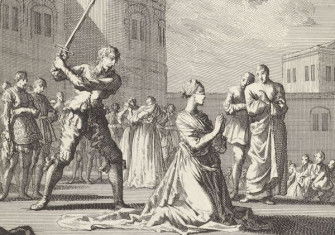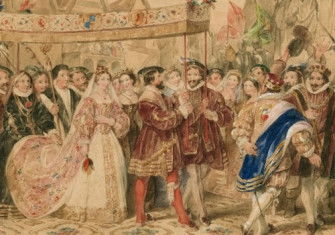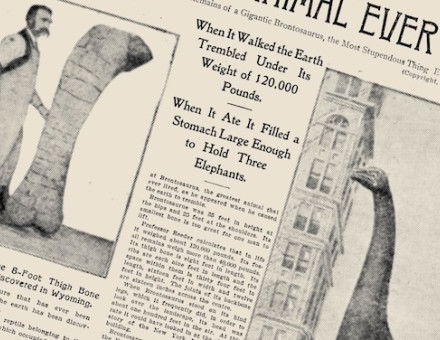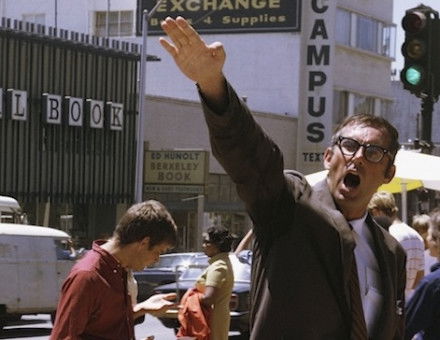Hunting the Falcon by John Guy and Julia Fox review
Hunting the Falcon: Henry VIII, Anne Boleyn and the Marriage That Shook Europe by John Guy and Julia Fox is a well-told account that shies away from debate.
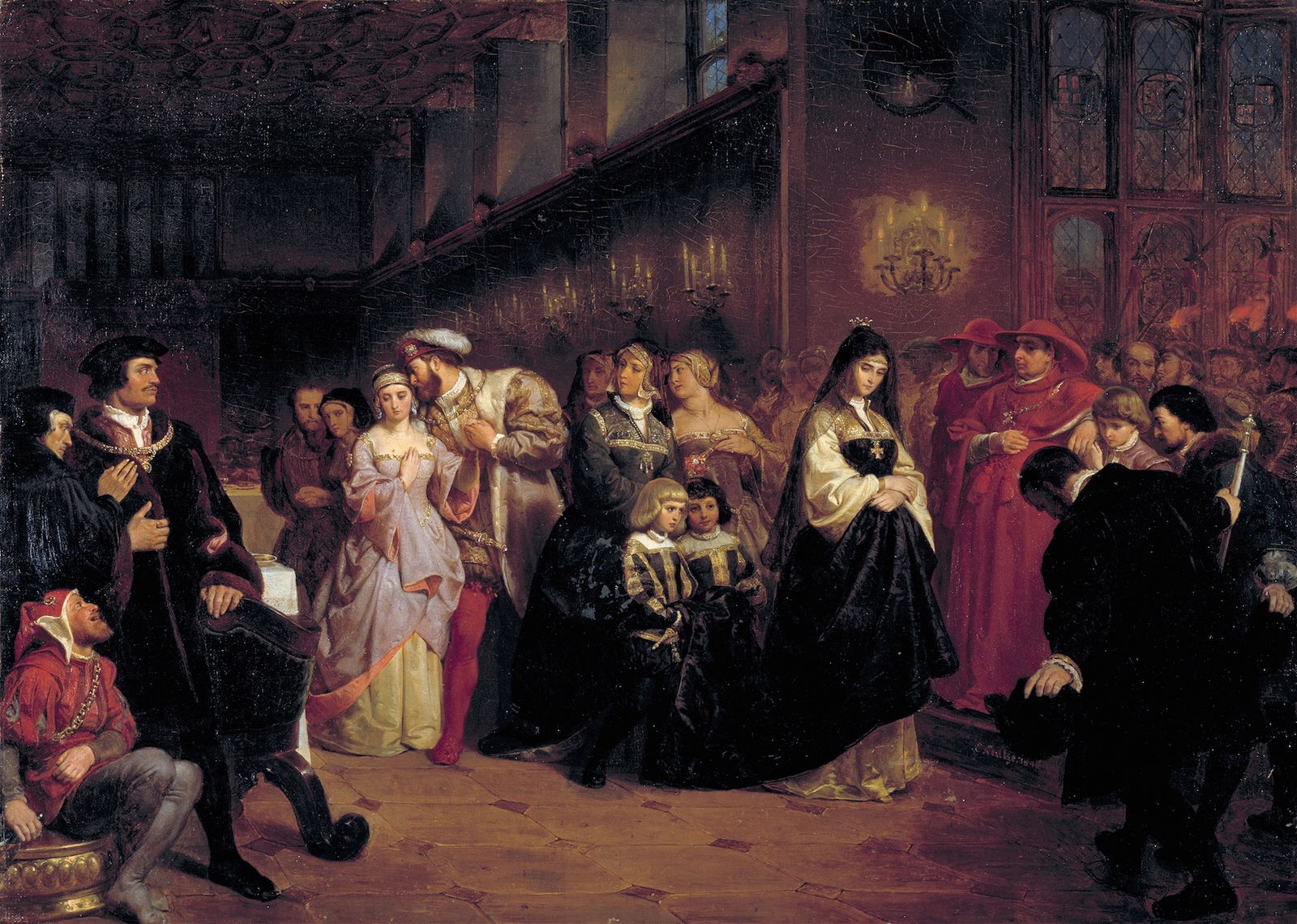
The life of Anne Boleyn life was utterly remarkable, but it was not destined to be so. Initially the future queen seemed set for a conventional life as an upper class lady-about-court who might expect to marry into the nobility. What made the difference in Anne’s case was the time she spent in France at the court of Queen Claude. Arriving in 1515, Anne stayed at the French court for seven years. Whether or not Anne’s experiences in France made her particularly attractive to the men at the Henrician court on her return, we can only speculate. We have no evidence of what she did in France. Acknowledging that French court culture was richer than its English equivalent is about as far as we can go. What we do know is that Anne returned to England in 1521 and that sometime around 1525-26 – scholars have offered ingenious, but uncompelling, arguments for the precise dates – Henry fell passionately in love with her, as his letters show. Not only did she become his only mistress, Henry was prepared to break with Rome to secure her as his legitimate wife and queen.
That all makes for a substantial – and very well known – tale, but there was of course more. Three years after the break with Rome, Anne Boleyn and her alleged lovers (one of whom was her own brother, George, Lord Rochford) were accused and convicted of treason, adulteries and incest. It was a truly astonishing turn of events. One might say you could not make it up, but for the fact that many have suggested that either Henry, or his chief minister, Thomas Cromwell, did just that.
With a story this well known, and argued about for centuries, how should the modern historian approach Anne’s extraordinary life? In his 1986 biography, Eric Ives presented Anne as a leading player among factional rivalries. In my own Anne Boleyn: Fatal Attractions (2012), I adopted a forensic approach, comparable to that of a judge probing and then giving his verdict. The method chosen by John Guy and Julia Fox in this fine new study is to focus on narrative, adopting a biographical approach in which Anne’s story hurtles relentlessly forward towards her tragic end. The book is executed with consummate skill. As an exercise in storytelling, it is a formidable achievement.
But there are disadvantages to this way of proceeding. One is that the book informs more than it enlightens. And not only do Guy and Fox offer little by way of analysis, they also tend to avoid controversies. A quick look at four vexed matters which Guy and Fox tend to dismiss and hold back from giving their own conclusions on may illustrate a weakness in their approach.
Firstly, they do not offer a verdict on whether Anne was guilty or innocent of the adulteries of which she was accused. Like it or not, it makes a great deal of difference how Anne was – and has been – perceived. At first Guy and Fox leave unchallenged the suggestion that she may have been guilty. That impression comes mostly from the French poet-cum-diplomat Lancelot des Carles, who saw her execution and who told the story of her rise and fall in his A Letter Containing the Criminal Charges Laid Against Queen Anne Boleyn of England. In the poem, one of the queen’s ladies responds to her brother’s rebukes about her conduct by asking why he criticises her when there are others who are much more guilty – the queen among them. But later in their book, Guy and Fox leave unchallenged the impression that Anne was in fact innocent, seemingly impressed by her defiant denials that she had committed adultery. This is not to say that Guy and Fox sit on the fence, but rather that they do not engage in the debate. The reluctance to state an opinion leaves the reader a little at sea.
Guy and Fox attribute Anne’s refusal to sleep with the king as a way of ensuring their marriage. Yet the more closely this commonly made claim is examined, the less credible it seems. Might it not, in fact, have been Henry who held back from full sexual relations for several years? In Henry’s letters we can see that, contrary to what is sometimes claimed, Anne was not controlling their relationship. Anne did not demand to be queen. Rather – perhaps influenced by the earlier fate of her sister Mary, who had also been one of Henry’s mistresses – Anne asked that Henry have no other mistresses but her. It was Henry who had good reason to want their relationship to be legal and any sons legitimate.
Similarly, it is not entirely clear from Guy and Fox’s account how Cardinal Thomas Wolsey and Anne Boleyn behaved towards each other. Four warm letters of thanks from Anne to Wolsey in 1528 suggest they were at least respectful and that Anne appreciated Wolsey’s efforts on her behalf. Wolsey’s increasingly desperate – but prescient – warnings that Henry would destroy both Wolsey and the pope’s authority in England if the pope did not grant Henry his divorce might have rewarded greater attention.
From time to time Guy and Fox’s narrative does slow down to consider Anne’s religion. There is good material here, especially on the sermons preached by John Skip, Anne’s almoner. What they show is that Anne, far from being a willing advocate for a protestant England, was instead keen to reform, but also preserve, much of the late medieval church.
Guy and Fox do touch on what influence Anne had over the break with Rome, but their consideration is brief. They – or their publisher – have given the book the subtitle ‘the marriage that shook Europe’. Such hyperbole is largely absent from the text. But that can readily be forgiven. Complexities aside, Hunting the Falcon is a splendid read, a remarkably well-told account of the rise and fall of Anne Boleyn. There remains plenty of scope for other authors to offer analysis of the evidence and advance new opinions on the controversial matters surrounding Anne’s demise. Her story will be told again.
Hunting the Falcon: Henry VIII, Anne Boleyn and the Marriage That Shook Europe
John Guy and Julia Fox
Bloomsbury, 624pp, £30
Buy from bookshop.org (affiliate link)
George W. Bernard is Emeritus Professor of Early Modern History at the University of Southampton. His latest book is Who Ruled Tudor England: Paradoxes of Power (Bloomsbury, 2021).



